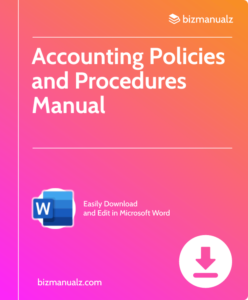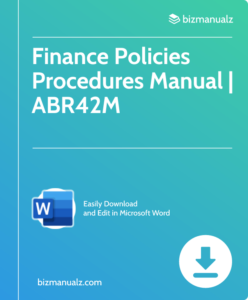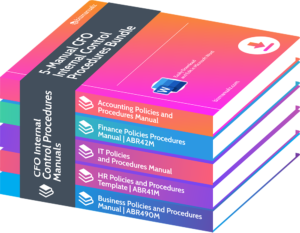What are the Professional Rules of Accounting?

Professional rules of accounting are essential for ensuring the accuracy and reliability of financial reports. They are a set of guidelines that accountants must adhere to when preparing financial statements, which are the primary source of financial information for decision makers. What are the professional rules of accounting?
Professional Rules of Accounting
Accounting is a critical function in any business organization. It involves the recording, classifying, and summarizing of financial transactions to provide useful information for decision-making. However, the accounting profession is guided by a set of professional rules that ensure the integrity and objectivity of financial reporting. In this blog post, we will discuss the professional rules of accounting.
The professional rules of accounting are designed to ensure the fairness and accuracy of financial reporting. They help to ensure that all transactions are accounted for in a consistent manner and that the resulting financial statements accurately reflect the company’s financial health. This helps to ensure that investors can make informed decisions about where to invest their money, and that creditors can be confident that their money is being properly managed.
The 10 Professional Rules of Accounting
The rules are set by professional accounting organizations, such as the American Institute of Certified Public Accountants (AICPA), the International Accounting Standards Board (IASB), and International Sustainability Standards Board (ISSB). They provide a framework for the recording, reporting, and analysis of financial data.
1. Maintain the integrity and independence of the profession by avoiding conflicts of interest.
Integrity is the foundation of the accounting profession. It requires accountants to be honest and truthful in their dealings with clients, colleagues, and the public. They must maintain confidentiality and avoid conflicts of interest that may compromise their objectivity. Integrity also means complying with applicable laws and regulations, as well as professional standards and ethical principles.
2. Maintain professional competence.
Professional competence is the ability to perform accounting tasks with skill, knowledge, and diligence. It requires accountants to maintain their technical proficiency and keep up-to-date with changes in accounting standards, laws, and regulations. Professional competence also means exercising due care and professional skepticism when performing accounting tasks.
3. Act with objectivity and professional care.
Objectivity is another critical rule of accounting. It requires accountants to be impartial and unbiased in their work. They must avoid any personal or financial interest that may influence their judgment or actions. Objectivity also means presenting financial information fairly and accurately, without any intentional or unintentional misrepresentation.
4. Apply generally accepted accounting principles (GAAP).
The GAAP rule requires that all financial information be accurately recorded and that the financial statements be prepared in accordance with GAAP. This answers the question: Must Accounting Policies Follow GAAP? It also requires that all accounting records be maintained and that all information be presented fairly and accurately, with all material facts disclosed.
5. Prepare financial statements to present a true and fair view.
The Professional Rule of Accounting requires that all financial statements are prepared in accordance with accepted accounting principles (GAAP) and must be accurate, complete, and understandable. Additionally, all transactions must be reported in the financial statements in a consistent manner and all information must be disclosed in a timely manner.
This rule also requires that any changes in accounting policies or estimates be disclosed in the financial statements. Lastly, all financial statements must be prepared in accordance with applicable laws and regulations.
6. Respect confidential information.
Confidentiality is a critical rule of accounting that requires accountants to maintain the privacy and confidentiality of client information. They must not disclose any confidential information to third parties without the client’s consent, except in certain circumstances, such as legal or regulatory requirements. Confidentiality also means protecting client information from unauthorized access or disclosure.
7. Disclose all relevant information.
The disclosure rule requires that all relevant financial information must be disclosed in order for financial statements to be considered reliable and accurate. This includes both quantitative and qualitative information, such as historical financial data, forecasts, and management-level decisions.
This rule is important because it helps to ensure investors and other stakeholders have access to all of the information they need to make informed decisions about their investments. Additionally, this rule helps to ensure that businesses are held accountable for their financial activities and decisions.
8 Exercise professional behavior.
Professional behavior is the way accountants conduct themselves in their professional and personal lives. It requires them to act with integrity, objectivity, and professional competence at all times. Professional behavior also means respecting the rights and dignity of others and avoiding any behavior that may bring disrepute to the accounting profession.
9. Disclose any potential conflict of interest.
This rule requires accountants to disclose any potential conflicts of interest that may arise in the course of their work. This includes any financial or personal interests that could influence the objectivity and reliability of the accountancy work being carried out.
It also requires accountants to inform their clients about any potential conflicts of interest, and to make sure that any advice they provide is based solely on their professional opinion and experience. The Professional Rule of Accounting is designed to ensure that accountants act in the best interests of their clients, and that their services are free from any bias or influence.
10. Maintain professional standards in any social media activity.
The Professional Rule of Accounting is a code of conduct designed to ensure that accounting professionals maintain the highest standards of ethical conduct and integrity when using social media. This code of conduct is important to ensure that accounting professionals do not use social media in ways that could be damaging to their reputation or violate any laws or regulations.
It also requires accountants to always be aware of the potential consequences of their social media activities and to use good judgment when posting information. Additionally, accountants are expected to maintain a professional online presence and to avoid activities that could damage the reputation of their profession. The Professional Rule of Accounting also requires accounting professionals to be honest and transparent in their communication, to respect the privacy of others, and to use social media responsibly.
Accounting Professional Rules
The rules help to maintain the public’s trust in the accounting profession, which is critical for the functioning of the global economy. By adhering to the professional rules of accounting, accountants can ensure that the financial reports that they produce are of the highest quality. This helps to ensure that investors can make informed decisions and that creditors can be sure that their money is being managed properly.
Aspiring accountants should familiarize themselves with these rules and strive to uphold them in their professional practice. Violation of these rules can result in serious consequences, including financial penalties and jail time. Therefore, it is essential that all accounting professionals adhere to the rules of the profession.
















Leave a Reply